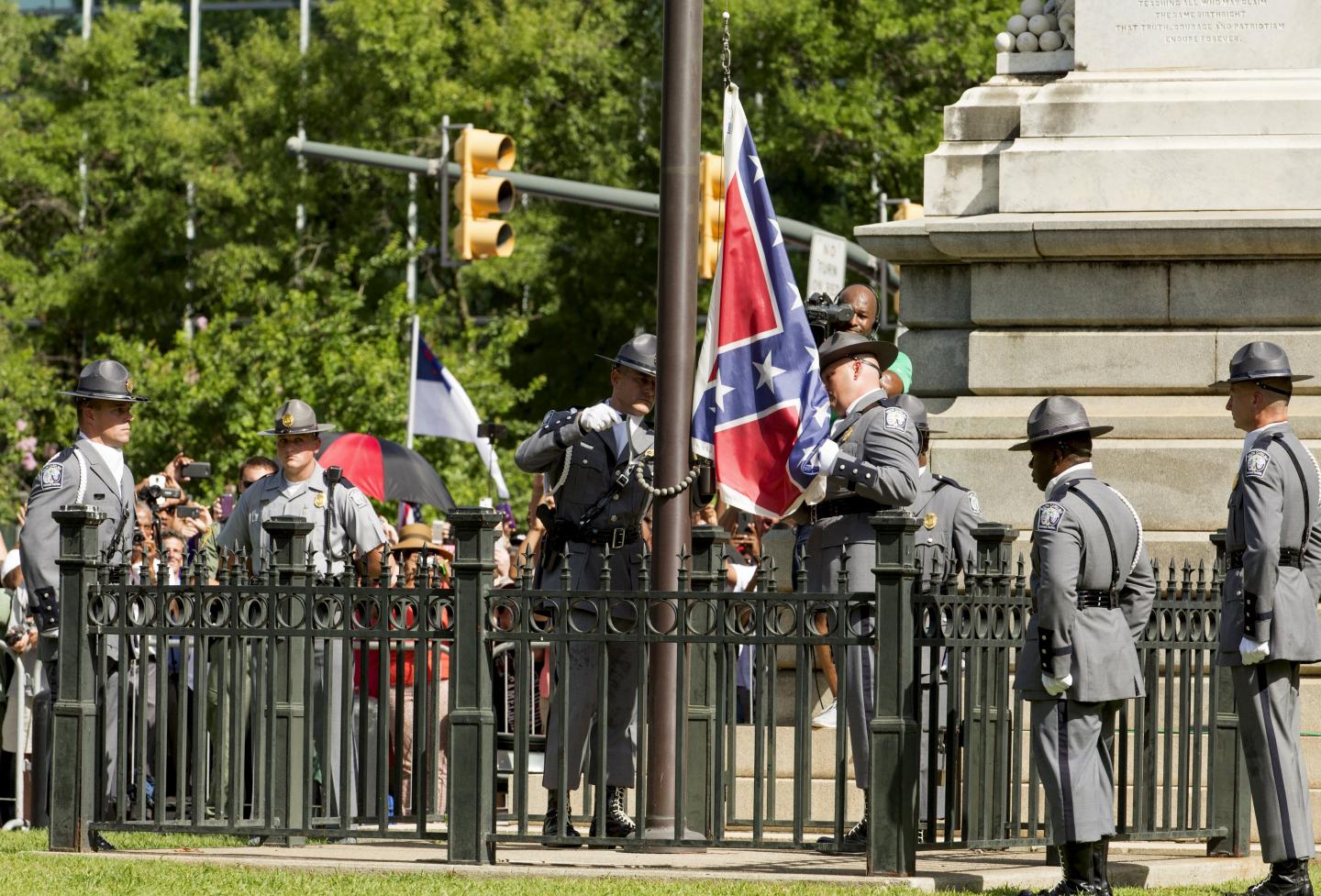SOUTH CAROLINA: Republicans Want to Build Monument to Black Confederates
The proposal by state Representatives Bill Chumley and Mike Burns for the revisionist pro-Confederacy monument on the statehouse grounds flies in the face of the historical record of the era as well as recent analyses.
“In all my years of research, I can say I have seen no documentation of black South Carolina soldiers fighting for the Confederacy,” Walter Edgar, former director of the University of South Carolina’s Institute for Southern Studies and author of South Carolina: A History, told The State.
“In fact, when secession came, the state turned down free (blacks) who wanted to volunteer because they didn’t want armed persons of color,” Edgar added.
There are also no payroll records of any black soldiers being paid in South Carolina. And all of the 300-plus blacks who did receive pensions for their time in the Confederate Army were either servants or cooks.
The lack of payroll records makes sense because until the last year of the Civil War, Confederate law barred blacks from bearing arms, The State reported, further suggesting that there simply were no blacks serving the pro-slavery rebel forces.
Last month, Chumley and Burns ignored the research in hopes of countering the anti-Confederacy monument movement by honoring black rebel veterans.
“While there is representation of those African-Americans from South Carolina who took up arms for the Union, there is nothing to show the contributions, sacrifices and honor of their Confederate counterparts,” their legislation states.
When contacted by The State and asked about the lack of evidence showing there were any black Confederate soldiers from South Carolina, Chumley said that the monument would seek to honor “all” blacks who served in the Confederate Army.
“The purpose of the bill is education,” he told the newspaper.
However, Edgar points out that all blacks who served in the Confederate Army “were all enslaved.”
South Carolina’s reverence of the Confederacy has come under intense scrutiny in recent years.
In July 2015, after avowed white supremacist Dylann Roof murdered nine worshippers at a historic black church in Charleston, the South Carolina state legislature removed the Confederate battle flag from statehouse grounds and transfer it to a nearby museum.
Both Chumley and Burns voted against that measure.
The movement to abolish Confederate monuments and memorials on public land gained steam in 2017. According to The New York Times, more than 30 cities either have removed or are removing such monuments.
Critics, including President Donald Trump, say that removing monuments honoring the Confederacy amounts to an erasure of history.
“Sad to see the history and culture of our great country being ripped apart with the removal of our beautiful statues and monuments,” Trump said in August.
“You can’t change history, but you can learn from it. Robert E Lee, Stonewall Jackson—who’s next, Washington, Jefferson? So foolish! Also the beauty that is being taken out of our cities, towns and parks will be greatly missed and never able to be comparably replaced!”
Detractors, however, point to a recent Southern Poverty Law Center report that many Confederate monuments weren’t erected immediately after the Civil War, but in the Jim Crow era when whites sought to oppress and segregate blacks—and used the monuments as an intimidation tactic.
“The argument that the Confederate flag and other displays represent ‘heritage, not hate’ ignores … the true history of the Confederate States of America and the seven decades of Jim Crow segregation and oppression that followed the Reconstruction era,” the report stated.
–newsweek.com
###




